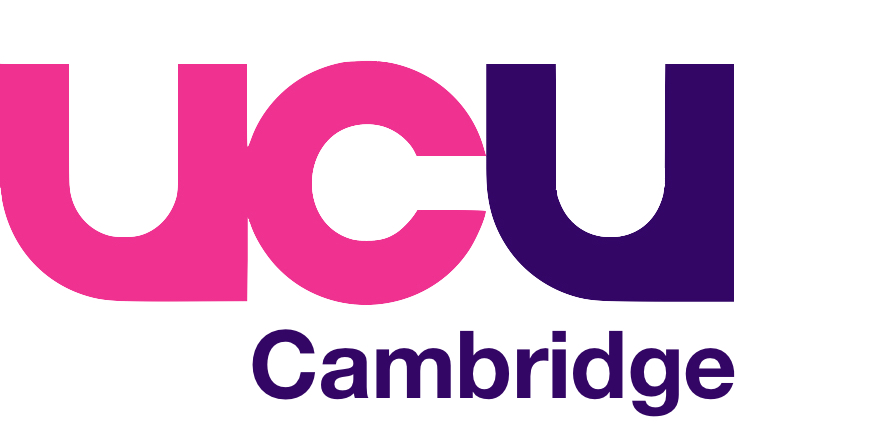This branch notes:
- Current UK pensions regulation, tied to a shift toward a hard-guarantee framework approach over the past few decades, requires pension funds put in extremely high amounts of contributions in order to guarantee protection even from extremely unlikely downside events such as the total collapse of the HE sector. This problematic framework has led to a progressive decrease in USS pension benefits over the past decade, including the loss of final salary, coupled with an eye-watering increase in contributions. This cycle of benefit cuts and increased contributions, in which USS has been stuck over the past decade, has been the cause of both the 2018 and 2019-20 strike actions taken by UCU members.
- It is in the interest of UCU members to explore options that would enable restoration of the lost USS benefits rate, including the possibility of returning to the level of pensions previously held under the final-salary structure. Alternative scheme designs, potentially including conditional indexation (as a modified form of DB, unlike the individualized nature of DC), have not been sufficiently explored so far.
- The publication on 3 August 2021 of a “Joint statement from Cambridge and Oxford universities and their UCU branches.” This statement calls for the creation of a UCU/UUK information-gathering working group to explore and critically assess new approaches to USS scheme design, including (but not limited to) conditional indexation. The statement emphasises that certain forms of conditional indexation would not be suitable candidates for consideration, saying that
“in finalizing the design of the scheme, extensive modelling should be undertaken to demonstrate that the probability of a material reduction in pension compared to CPI indexation is low,” that the scheme design must be one that will “protect against the erosion of benefits even in conditions of high market volatility,” and that it is “important that scheme design ensures USS continues to invest a significant proportion of the fund in growth assets and that there is not the discretion for the trustee to withhold indexation out of a desire (without clear justification) to increase the level of prudence in the scheme.”
- The joint statement followed a December 2020 joint letter from Cambridge University/UCU forcefully calling out the flaws and unevidenced deficit claims in the USS trustee’s valuation methodology in the 2020 valuation, and the University of Cambridge’s response to the recent UUK consultation in May 2021, in which the University spoke out in favor of upholding members’ current benefits and criticized the UUK proposal of major cuts to benefits.
- The Joint Expert Panel and Valuation Methodology Discussion Forum (VMDF) have previously set precedents for UCU and UUK fruitfully working together to analyse the actual data and health of USS.
- First Actuarial (UCU’s actuarial advisers) have spoken out in favour of the viability of alternative scheme designs of this type, through their WinRS proposal for the CWU in 2017.
- The exploration of alternative scheme designs has the support of multiple UCU national pensions negotiators as a possible long-term solution to the cycle of conflict related to USS. For example, Sam Marsh, who has published extensively (e.g., here) on the problems facing members vis-à-vis USS, applauded the publication of the joint statement as “an announcement which may turn out to be an important step in the history of USS pensions.”
- Any suggested proposals from such a working group will not be implemented unless they have gone through the democratic structures of UCU to ensure that they are on terms that members view favourably.
This branch believes that:
- Knowledge is power, and that we need to gather information about the different possible ways out of the existing USS cycle of cuts and benefit losses.
- Information gathering is particularly crucial at this stage, since we do not yet have enough information to know which types of alternative scheme design would be feasible in relation to UK pension regulation and USS, and which would not.
- Fighting to defend our pensions against cuts entailed by the USS 2020 valuation is compatible with and enhanced by critical exploration of alternative scheme designs for a longer-term solution.
- Any working group on this topic should be structured and conducted in a manner so as not to pre-judge what the outcome will be.
- The working group should include people who are currently skeptical about the feasibility of approaches like conditional indexation, as well as people who currently think such approaches hold concrete promise for restoring previous cuts to our benefits. Joint examination of data and evidence by people with different starting views is the best way to arrive at conclusions that are more solidly evidence-based.
- To block information gathering is detrimental to our ability to fight to defend our pension benefits.
This branch moves:
- To reaffirm, by the publication of this motion, the joint statement’s call for a UCU/UUK information-gathering working group to critically explore alternative scheme designs for USS.
- To coordinate with the growing list of other interested UCU branches to develop a multi-branch motion for future Sector Conference/Congress meetings to speed up the formation of such a working group.
- To continue preparing for strike action to put maximum pressure on UUK over the 2020 valuation.
